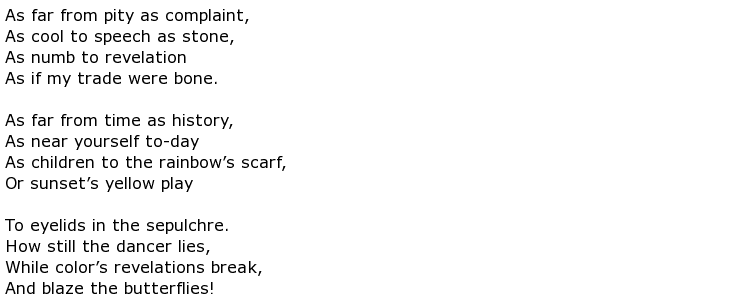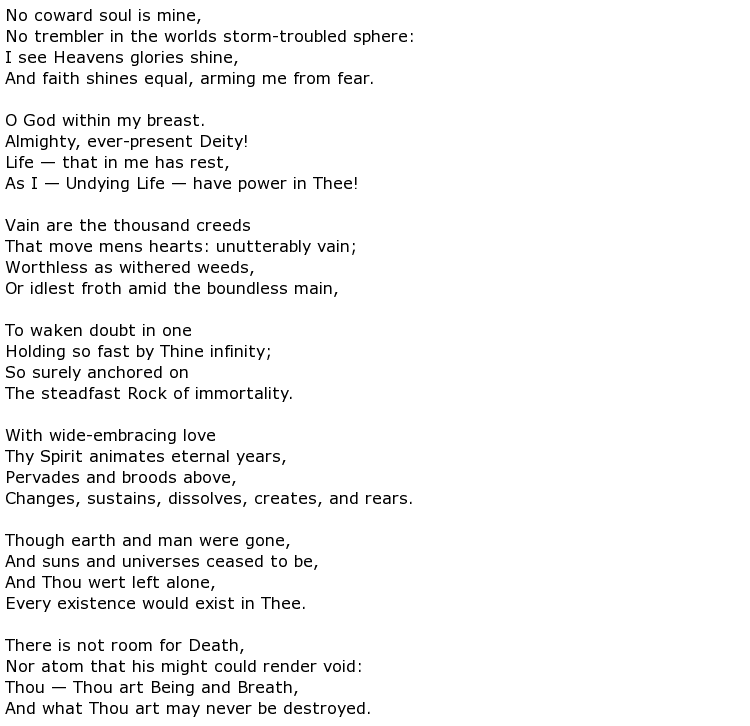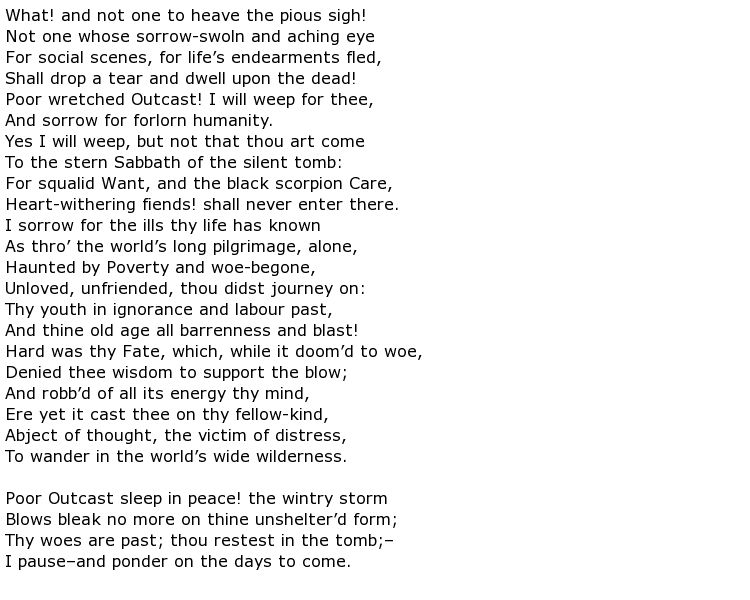 The reading of poetry or verse is often a part of a funeral service. For that reason, there are many poems that have become renowned for their use upon this occasion – poems that have the ability to comfort the grieving while honoring the dead.
The reading of poetry or verse is often a part of a funeral service. For that reason, there are many poems that have become renowned for their use upon this occasion – poems that have the ability to comfort the grieving while honoring the dead.
One of the best-known and most popular of funeral poems is Mary Elizabeth Frye‘s “Do Not Stand at My Grave and Weep:”

Frye’s verse is a perfect example of a poem that offers hope in the face of tragedy, comfort in a time of need. For that reason, it has earned a place among many a funeral service.
Poet Emily Dickinson often wrote about death; while this preoccupation may seem morbid, the result are poems that have offered comfort to those who grieve for decades. One of the most popular of Dickinson’s poems about death, one that has come to be known almost exclusively as a funeral poem, is “Asleep:”

“Asleep” is particularly special poem for those who have lost their loved ones after a long illness, as it is concerned with the idea that those who have passed on are now in a better place.
Another poem that offers hope to those who are grieving by accentuating the idea of hereafter is Emily Bronte‘s “No Coward Soul is Mine:”

Bronte’s vision of a glorious everafter offers both hope and a measure of peace to those who grieve.
While on the subject of funeral poems, there are those poems that deal not with death, but with the funeral itself. One funeral poem in particular that offers an unvarnished look at funerals is Robert Southey‘s “The Pauper’s Funeral:”

While Southey may take a jaundiced view of the funeral of the poor and forgotten, his verse is nonetheless powerful.
Another poem about a funeral – and one much pithier than Southey’s – is Thomas Hardy‘s “She at His Funeral:”

Hardy minces – nor wastes – any words on the funeral tradition, while painting a picture of genuine grief.
A poem can be a great comfort at a funeral, but can also crystallize the experience of the funeral itself. While death may be a more popular subject of poetry, funerals also occupy an interesting place in literature.


You must register to comment. Log in or Register.